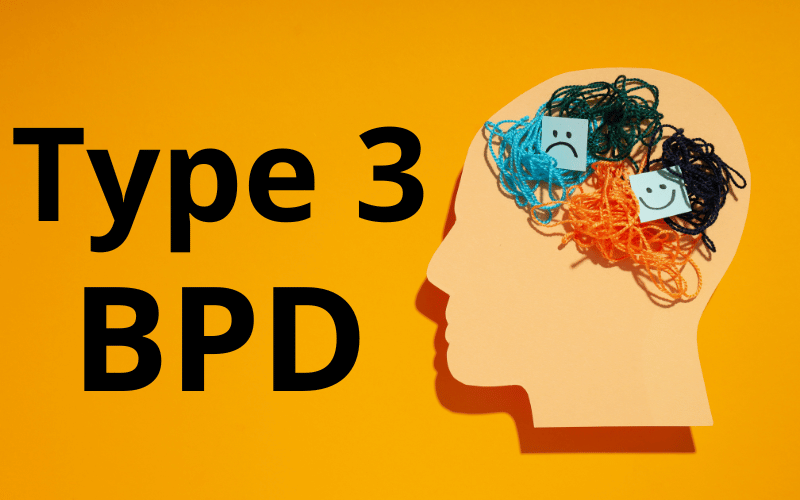Type 3: Petulant Borderline Personality Disorder

Petulant BPD presents a unique challenge, both for the individuals and those close to them. At the core lies an unpredictable oscillation between affection and anger. One could easily compare them to a stormy sea, serene one moment and tempestuous the next. This erratic shift can be quite perplexing, with episodes of warmth suddenly replaced by bursts of resentment.
Mistrust seems to be an ever-present shadow for these individuals. Every gesture, every word spoken by others, is viewed through a lens of skepticism. This constant apprehension makes them highly sensitive and defensive. Even compliments or genuine acts of kindness are dissected and analyzed, often leading to misinterpretations. This distrust erects walls, keeping them guarded even in intimate relationships.
Being in a relationship with someone having Petulant BPD can be likened to a perpetual tug of war. They deeply crave intimacy and fear abandonment. Yet, their inherent distrust pushes them to test their loved ones, almost setting them up for perceived failures. This ‘push-pull’ dynamic is emotionally draining, with moments of closeness immediately followed by instances of detachment and resentment.
To shield themselves from perceived threats and betrayals, these individuals often don defensive armors. However, these aren’t just walls; they’re fortresses equipped with spikes. When they sense potential harm (often in benign situations), they retaliate aggressively. This preemptive strike, intended to protect them from hurt, often alienates them further, making genuine connections even more elusive.
Life with Petulant BPD is like navigating through treacherous waters, filled with storms of doubt, anger, and defensiveness. But, beneath the stormy façade lies a genuine yearning for safe harbors – relationships and spaces where they feel understood, valued, and secure. Guided by therapeutic interventions and understanding, they can learn to anchor themselves and cherish the calm amidst the storm. (3)